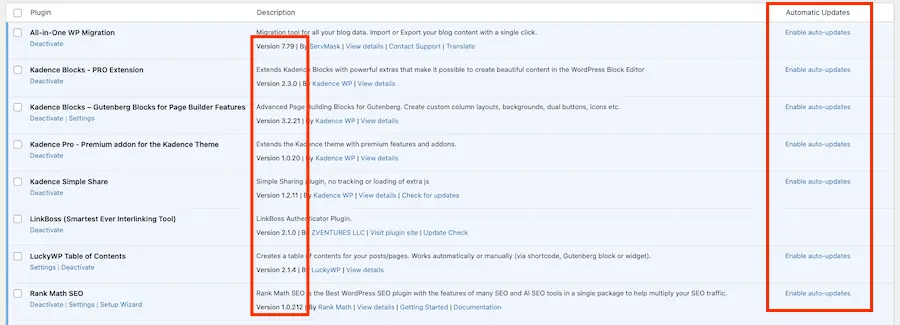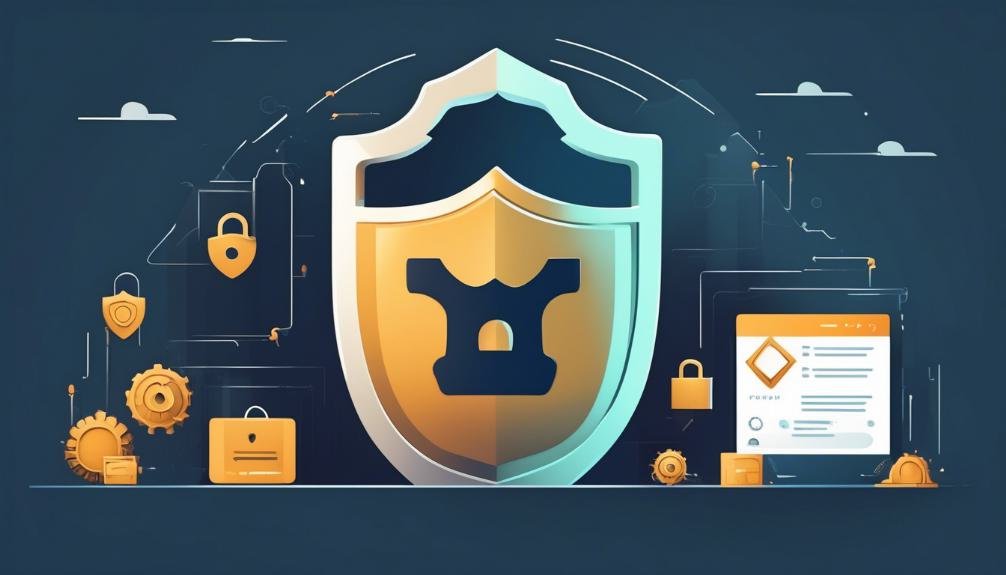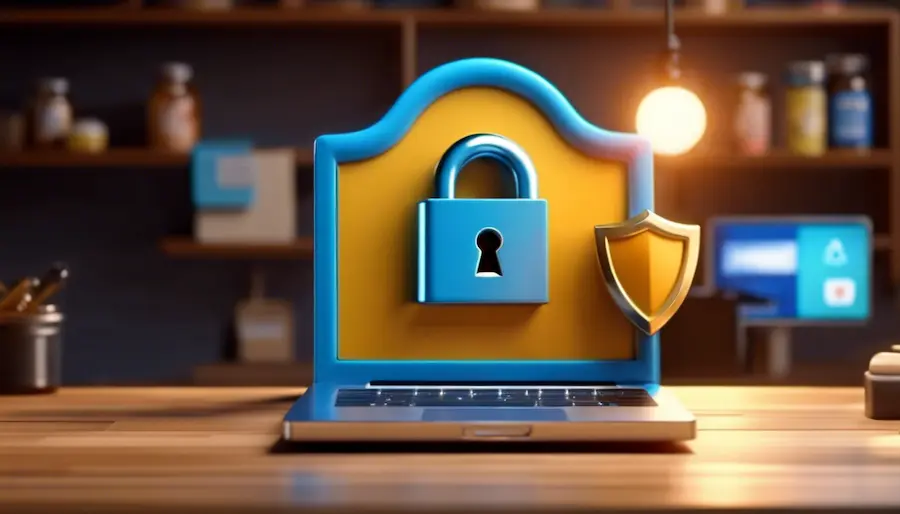Are you confident that your small business website is adequately protected from potential security threats?
As a small business owner, you understand the importance of maintaining a secure online presence. However, with the ever-evolving landscape of cyber threats, it’s crucial to stay informed about the top security tips specifically tailored for small business websites.
By implementing these practical and actionable measures, you can significantly reduce the risk of falling victim to cyber attacks and safeguard your business’s digital assets.
But what are these key security tips, and how can they be effectively applied to your website?
Secure Password Practices

To keep your small business website secure, it’s important to use strong passwords. Make sure each account has a unique password to make it hard for hackers to get in. Use a mix of capital and lowercase letters, numbers, and special characters for extra security.
You might want to consider using password management software to store and manage your strong passwords safely. This way, you won’t have to remember all your passwords, and your sensitive information will be better protected.
You can also add an extra layer of security by using multi-factor authentication to protect your private information. This means that in addition to entering your password, you’ll also need to provide another form of verification, such as a fingerprint or a code sent to your mobile device.
Employee Training and Awareness

You need to prioritize regular security training for your employees to help them recognize and prevent potential threats.
Phishing email recognition is a critical skill that can be honed through training programs, reducing the likelihood of falling victim to such attacks.
Security Training Importance
How can you prepare your employees to recognize and prevent security risks effectively?
Security training is very important for small business websites to fight against the increasing threat of cybercrime. You need to give your team the knowledge to spot and stop security risks in order to protect your business from potential data breaches.
Having a strong security awareness program has been shown to lower the number of security incidents.
Regular training sessions and workshops are important for improving risk identification and promoting proactive security measures. Also, stressing the importance of strong passwords and multi-factor authentication as part of employee training will strengthen data protection.
Keeping your employees informed about the latest cybersecurity threats and trends is crucial to make sure they stay alert and protect your business.
Phishing Email Recognition
You should have regular training to help you spot and avoid phishing emails, which cybercriminals often use to try to get access to your important information.
To make sure you and your coworkers are aware of the risks, think about doing these things:
- Have regular training sessions and workshops to teach you how to recognize phishing emails.
- Show examples of common signs of phishing emails, like generic greetings, urgent requests, and suspicious links.
- Teach you about the importance of checking if an email sender is real before you click on any links or share important info.
Regular Software Updates

It’s important to keep your software up to date to stay secure.
You need to regularly update your software to protect your small business from cyber threats.
Updates help fix bugs, improve performance, and enhance security.
By making sure you regularly update your software, you can keep your business website safe from potential cyber attacks.
If you don’t update your software, your website could be at risk of being hacked, which could lead to sensitive data being compromised.
Make it a habit to check for and install software updates on a regular basis to keep your website secure.
This simple task can go a long way in protecting your business and customer data from cyber threats.
Network and Wi-Fi Security

To boost the security of your small business website, it’s important to focus on keeping your network and Wi-Fi safe. Here are some things to keep in mind:
- Secure Your Wi-Fi
- Use strong and unique passwords to stop unauthorized access.
- Use network encryption (WPA2 or WPA3) and regularly update your Wi-Fi router’s firmware for added security.
Access Controls and Permissions

Once you’ve secured your network and Wi-Fi, the next important step for making your small business website more secure is to set up strong access controls and permissions.
Use the principle of least privilege to limit internal data breaches. Check user accounts and permissions regularly to keep your data safe. Make clear rules for who can access sensitive data. Fix any problems with user accounts to prevent misuse.
Access controls and user permissions help improve overall data security. By managing access carefully, you can greatly reduce the risk of unauthorized access to important information.
It’s important to review and update access controls regularly to keep up with changes in your business and potential security risks.
Small business websites can benefit a lot from taking a proactive approach to managing access and permissions.
Data Backup Strategies

Make sure you back up your important business data on a regular basis.
Here are some practical tips for a strong data backup plan:
- Keep your backup copies safe: Use encryption and store them off-site to prevent data loss.
- Use secure cloud storage: Pick trusted providers to store your business data securely off-site.
- Test your backups often: Check and confirm your backups to make sure you can restore your data.
- Do test restores: Make sure your backups work and can be restored if you lose data.
Investment in Security Tools

Make smart choices when investing in security tools like security plugins, antivirus software, intrusion detection systems, and encryption to protect your small business website from online threats.
It’s important to pick the right security systems for your needs and budget to improve data security. Look for affordable options that fit your small business budget while still providing protection against cyber threats.
Prioritize investing in security tools as a key part of building a strong foundation for data security. Using these tools and technologies can greatly improve your overall security.
Incident Response Planning

You need to plan for potential breaches and establish clear protocols for responding to security incidents.
It’s crucial to have a well-defined incident response plan that outlines specific actions and assigns accountability in case of a breach.
Regular evaluation and updates of the incident response plan are essential to ensure its effectiveness and relevance to evolving security threats.
Plan for Breaches
Creating a plan for dealing with security breaches is really important for small businesses like yours. Here are a few things to keep in mind:
- Make sure your incident response plan includes specific actions and identifies who’s responsible for carrying them out. This will help you respond quickly and effectively to any security issues.
- It’s a good idea to review and update your incident response plan regularly to make sure it’s still effective and up-to-date with the latest security threats.
- You might also want to consider using an identity theft protection service. This can give you extra support and alerts if there’s a breach, which can be really helpful in minimizing the impact of a security incident.
Having a clear and detailed incident response plan is really important for managing cybersecurity incidents and reducing their impact on your small business website. Make sure to review and update your plan regularly to stay on top of any new cybersecurity threats.
Establish Clear Protocols
It’s important for your small business website to have clear incident response protocols to manage and prevent security breaches.
You should outline specific roles and responsibilities for your employees in case of a security incident.
Create a detailed plan for responding to different types of cybersecurity threats, like malware, phishing, and data breaches.
Practice drills and simulations regularly to test the plan and make sure your employees know what to do.
Also, make sure your plan meets regulatory requirements and industry best practices.
Endpoint Protection

Protect your business’s devices connected to the network with strong endpoint protection. This includes keeping your antivirus and anti-malware software updated, using firewalls, and intrusion detection systems.
Also consider the following:
- Use advanced endpoint security solutions that give thorough protection against malware, ransomware, and other cyber threats.
- Look for security software that has behavioral analysis and machine learning abilities to find and stop new threats before they cause harm.
- Pick security software that offers centralized management and reporting for all endpoint devices, making it easier to monitor and control them.
Following these endpoint protection measures can help strengthen your business’s defenses and provide crucial security for your network-connected devices.
Conclusion
To keep your small business website safe, it’s super important to follow these security tips.
Using really strong passwords, keeping all your software up to date, and getting good security tools can help lower the chances of bad guys getting into your website and stealing information.
Teaching your team about tricks bad guys use to get information and checking your security logs often can make your website even safer.
Making sure your website is secure is super important for keeping your business safe and making sure your customers feel good about trusting you.




